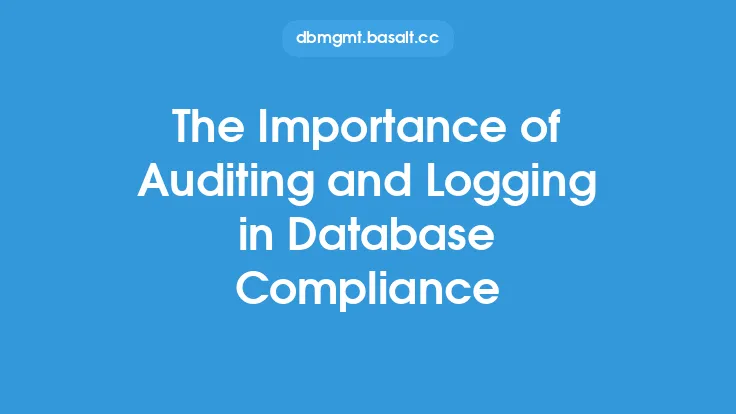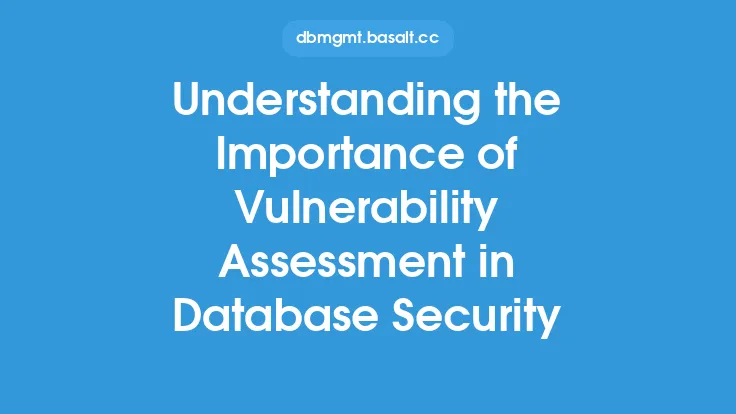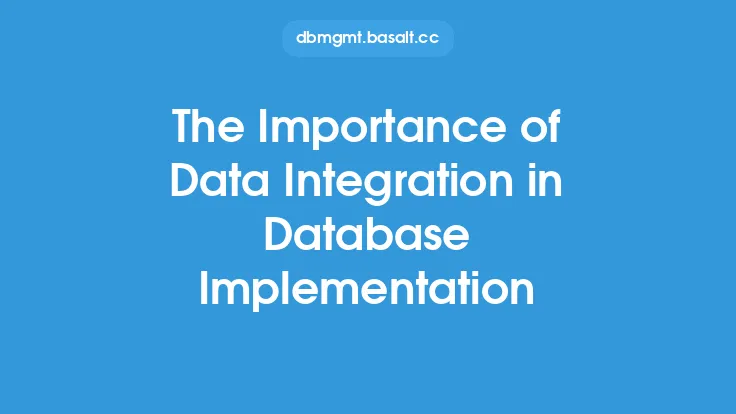Logging is a critical component of database security, providing a record of all interactions with the database, including queries, changes, and access attempts. This record, known as an audit log or audit trail, is essential for maintaining the security, integrity, and availability of the database. In this article, we will explore the importance of logging in database security, including its role in detecting and responding to security incidents, meeting regulatory requirements, and improving overall database security posture.
What is Database Logging?
Database logging refers to the process of recording and storing information about all interactions with the database, including queries, changes, and access attempts. This information is typically stored in a log file or database table, and can be used to track changes, monitor performance, and detect security incidents. Database logging can be configured to capture a wide range of information, including user IDs, IP addresses, query text, and timestamps.
Benefits of Database Logging
Database logging provides several benefits, including:
- Improved security: Logging provides a record of all interactions with the database, making it easier to detect and respond to security incidents.
- Regulatory compliance: Many regulatory requirements, such as PCI-DSS and HIPAA, require organizations to maintain audit logs of all database interactions.
- Performance monitoring: Logging can be used to monitor database performance, identify bottlenecks, and optimize queries.
- Troubleshooting: Logging can be used to troubleshoot issues with the database, including errors and unexpected behavior.
Types of Database Logging
There are several types of database logging, including:
- Transaction logging: Records all changes made to the database, including inserts, updates, and deletes.
- Query logging: Records all queries executed against the database, including SELECT, INSERT, UPDATE, and DELETE statements.
- Connection logging: Records all connections to the database, including user IDs, IP addresses, and timestamps.
- Error logging: Records all errors that occur in the database, including syntax errors, permission errors, and other exceptions.
Best Practices for Database Logging
To get the most out of database logging, organizations should follow several best practices, including:
- Configure logging to capture all relevant information, including user IDs, IP addresses, query text, and timestamps.
- Store log files in a secure location, such as a separate server or a cloud-based logging service.
- Implement log rotation and retention policies to ensure that log files do not become too large or outdated.
- Monitor log files regularly for signs of security incidents or other issues.
- Use log analysis tools to identify trends and patterns in the log data.
Challenges and Limitations of Database Logging
While database logging is an essential component of database security, it is not without its challenges and limitations. Some of the challenges and limitations of database logging include:
- Log file size and complexity: Large log files can be difficult to manage and analyze, particularly if they contain a high volume of data.
- Performance impact: Logging can have a performance impact on the database, particularly if it is not configured correctly.
- Security risks: Log files can pose a security risk if they are not stored securely, as they may contain sensitive information such as user IDs and passwords.
- Compliance requirements: Organizations must comply with regulatory requirements for logging, which can be time-consuming and resource-intensive.
Conclusion
In conclusion, logging is a critical component of database security, providing a record of all interactions with the database and helping to detect and respond to security incidents. By understanding the importance of logging, the benefits and types of logging, and the best practices for logging, organizations can improve their overall database security posture and meet regulatory requirements. While there are challenges and limitations to database logging, the benefits far outweigh the costs, and organizations should prioritize logging as a key component of their database security strategy.





